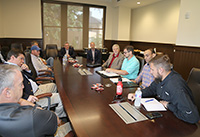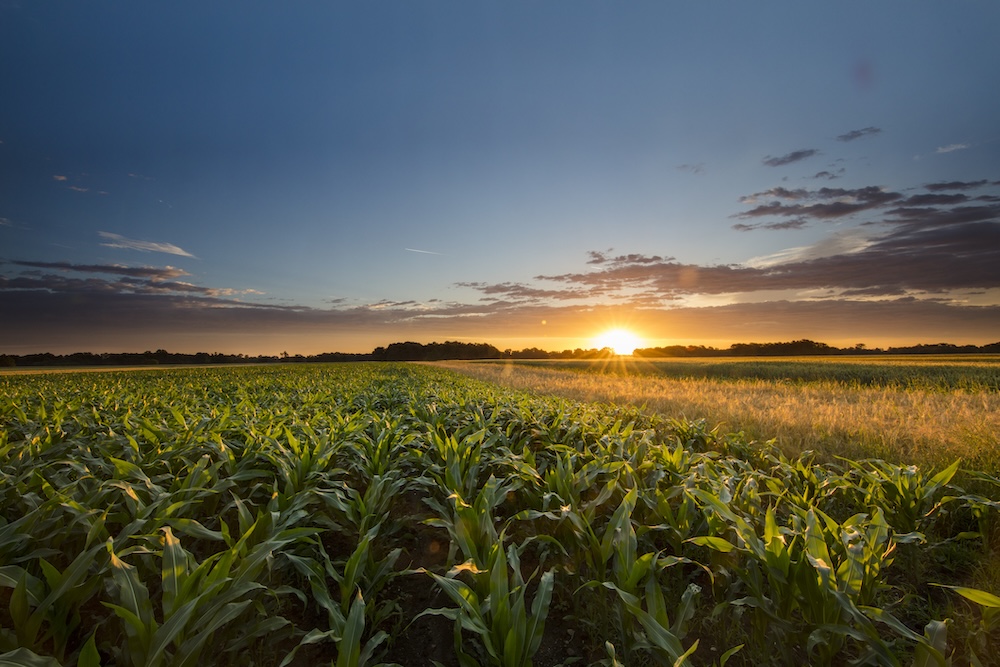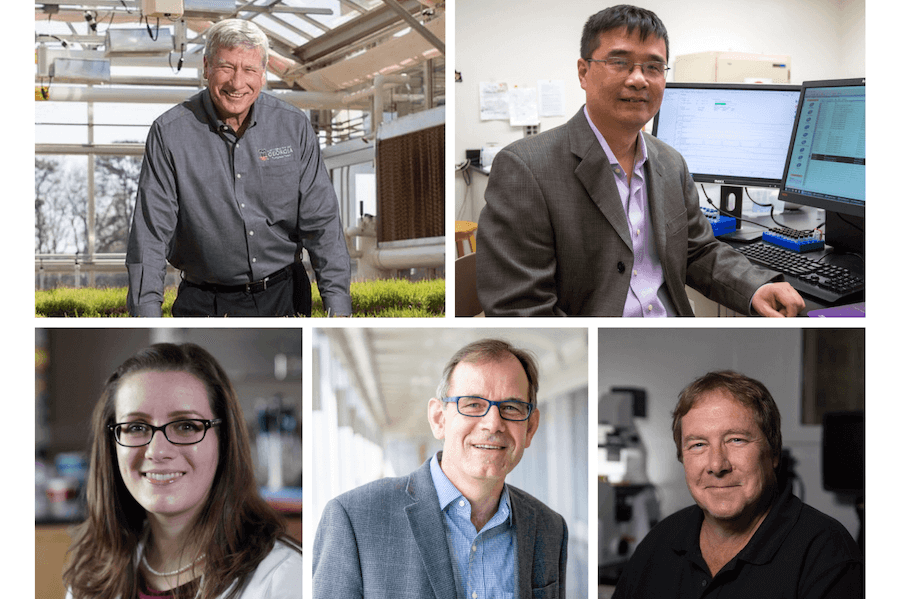Georgia farmers have technological advancements at their fingertips but many are not able to use them to their fullest extent due to the lack of broadband internet access, according to Wes Porter, University of Georgia Cooperative Extension precision agriculture and irrigation specialist.
“We’re creating all sorts of useful data on machines in the field but if we don’t have a reliable way to get it off the machines, processed and back into the farmers’ hands, it’s not going to be utilized,” Porter said.
Rep. Buddy Carter of Georgia's 1st District, Rep. Austin Scott of Georgia's 8th District, and Federal Communications Commission (FCC) Commissioner Brendan Carr met with members of the UGA Precision Agriculture team and stakeholders from the Georgia Cotton Commission, Georgia Peanut Commission, Georgia Pecan Commission and the Flint River Water District on Wednesday, April 17, on the UGA Tifton campus to discuss the importance of broadband access for the future and sustainability of Georgia agriculture.
“The important thing is that the FCC commissioner got to hear firsthand from the people who need this technology to produce sustainable crops. However, it’s not just for them, but it’s important to ensure prosperity for the rural economy. If the farmers are doing well, the whole rural economy’s going to do well,” Scott added.
Porter and UGA agricultural engineer Glen Rains made it plain that tools such as auto-steer technology, variable rate irrigation, in-field controllers, smartphone apps, soil moisture sensors and unmanned aerial vehicles (UAVs) are all critical precision agriculture tools they use in their research for the UGA College of Agricultural and Environmental Sciences. These technologies help UGA scientists be more efficient in the field. Unfortunately, many of the state’s producers are restricted by the lack of broadband access or poor-quality broadband service.
“We’re sitting on the cusp of all of this new and innovative technology. Most of our farmers have this technology, but it’s underutilized for that one reason,” Porter said.
Variable rate irrigation allows farmers to use water more efficiently by only applying water to the areas of the field that need it. Smartphone apps and soil moisture sensors enable producers to know when to schedule an irrigation application and how much to apply. Unmanned aerial vehicles allow producers to know when crops are stressed by disease or lack of nutrients.
“We know that information regarding our crops can change, sometimes hourly. We know we definitely need daily decisions when we’re looking at it. We need the data uploaded and a decision made within a day, maximum,” Porter said. “Sometimes we may want it a little faster if it’s a fast-moving disease. We just don’t want the information to be sitting on a controller or field computer for weeks or seasons at a time. The timeliness is gone. There’s very little use for it anymore.”
Congressman Scott stressed the importance of FCC Commissioner Carr taking the time to visit with the UGA scientists to talk about the need for fast access to web-based data.
“Whether it’s satellite data or web-based internet data, it is extremely important for precision agriculture,” Scott said. “I’m just thankful he came down to listen to the people who are carrying out the research to learn exactly how much good it can do, not just for the farmers but for the environment.”







